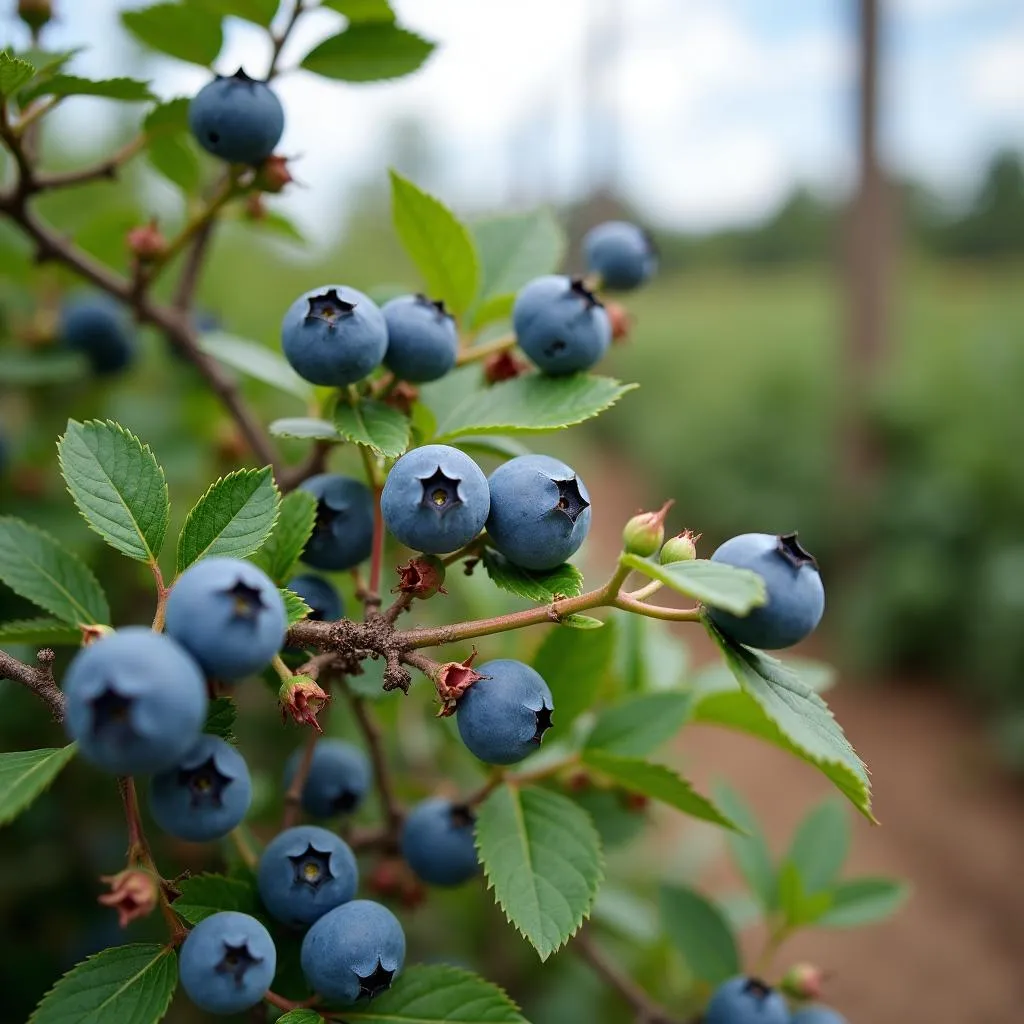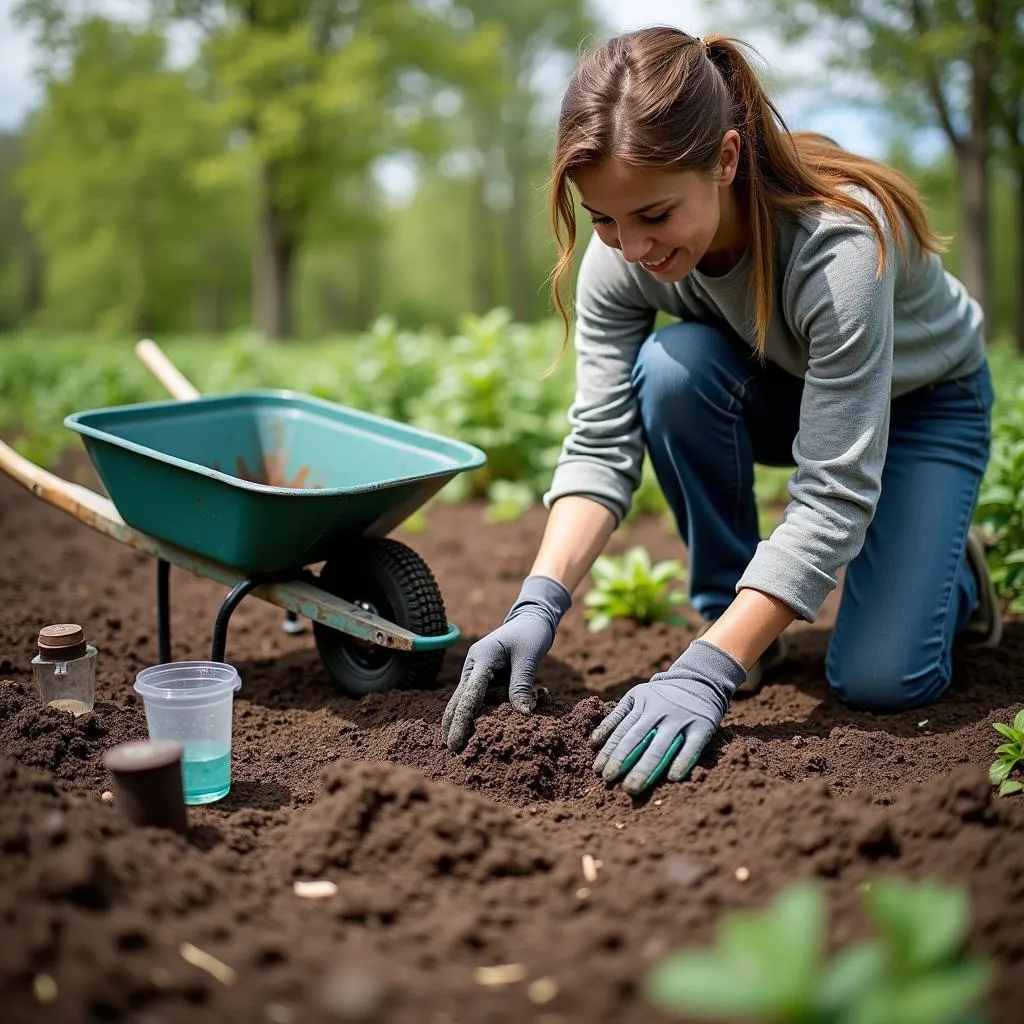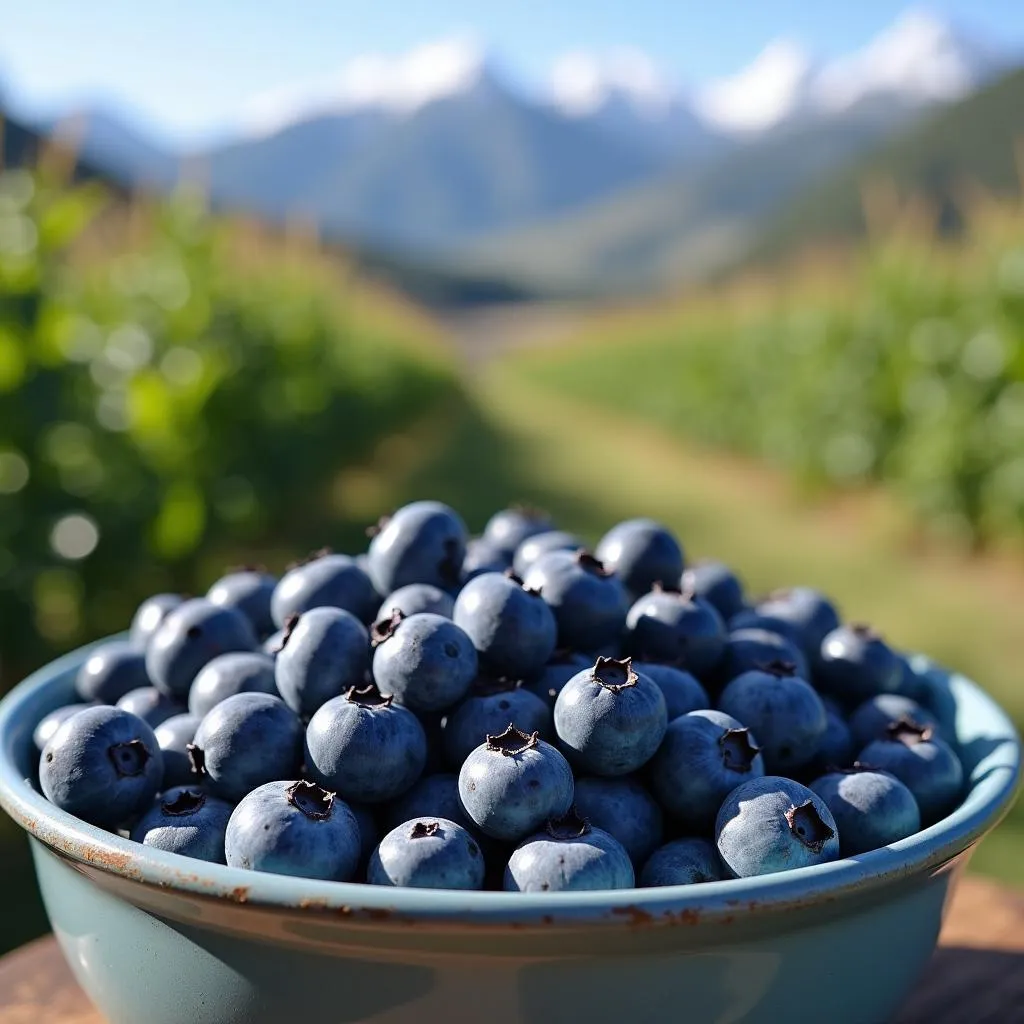Blueberries are a delicious and nutritious fruit that many people enjoy. They are relatively easy to grow in the right conditions, and many home gardeners find them to be a rewarding addition to their yards. But what about Colorado? Can you grow blueberries in the Centennial State?
The answer, thankfully, is yes! While Colorado’s climate and soil conditions can be challenging for some plants, blueberries can thrive with a bit of extra care and attention.
Understanding Colorado’s Climate and Blueberries
Colorado’s climate is generally characterized by its dry air, ample sunshine, and wide temperature swings. While these conditions are great for many plants, they present a few challenges for blueberry cultivation:
- Soil Acidity: Blueberries thrive in acidic soil with a pH level between 4.5 and 5.5. Colorado soils, however, tend to be more alkaline.
- Winter Temperatures: Some blueberry varieties are not as cold-hardy and might struggle with Colorado’s harsh winter temperatures, particularly in higher elevations.
 Colorado blueberry garden
Colorado blueberry garden
Choosing the Right Blueberry Varieties for Colorado
The key to successfully growing blueberries in Colorado is to choose the right varieties. Look for cultivars that are known for their cold hardiness and ability to tolerate a slightly higher soil pH. Some excellent choices for Colorado gardens include:
- Northland: This variety is extremely cold-hardy and can withstand temperatures as low as -40°F. It produces medium-sized, flavorful berries.
- Pink Popcorn®: This unique variety offers sweet berries with a slightly tart finish. Pink Popcorn® is known for its beautiful pink fruits.
- Bluecrop: A popular and reliable variety, Bluecrop is known for its large, flavorful berries and good disease resistance.
Tips for Growing Blueberries in Colorado
Successfully growing blueberries in Colorado requires a little extra attention to their specific needs. Here are some essential tips:
- Soil Preparation: Test your soil pH and amend it as needed to reach the desired acidity level. Adding elemental sulfur or acidifying fertilizers can help lower the pH.
- Planting Location: Choose a sunny location that receives at least 6-8 hours of direct sunlight per day. Blueberries also need well-drained soil, so avoid areas that tend to collect water.
- Watering: While blueberries like moist soil, they don’t tolerate soggy roots. Water them deeply and regularly, especially during dry spells, but allow the soil to dry out slightly between waterings.
- Mulching: Apply a thick layer of organic mulch, such as pine bark or wood chips, around the base of your blueberry plants. This helps retain moisture, regulate soil temperature, and suppress weeds.
- Winter Protection: In colder regions of Colorado, consider providing your blueberry bushes with some winter protection. You can wrap them in burlap or use a frost blanket to shield them from harsh winds and freezing temperatures.
 Colorado gardener amending soil for blueberries
Colorado gardener amending soil for blueberries
Harvesting Your Colorado Blueberries
With proper care, your blueberry bushes will reward you with delicious, juicy berries. Blueberries are typically ready to harvest in mid-summer to early fall, depending on the variety and your local climate. Here’s how to know when your blueberries are ripe and ready to pick:
- Color: Ripe blueberries will have a deep blue color, almost purple. Avoid picking berries that are still green or have a reddish tinge.
- Texture: Gently squeeze the blueberry. A ripe berry will be slightly soft and yield to gentle pressure.
- Taste: When in doubt, taste a berry! Ripe blueberries will be sweet and flavorful.
 Freshly picked blueberries in Colorado
Freshly picked blueberries in Colorado
Conclusion
While growing blueberries in Colorado comes with a unique set of considerations, it is definitely achievable. By selecting the right varieties and following proper planting and care techniques, you can enjoy the satisfaction of harvesting your own homegrown blueberries right in your Colorado backyard.

